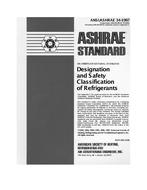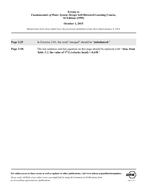Lee and Braun (2008b) developed a simple approach, termed the weighted-averaging (WA) method, that estimates building zone temperature set-point variations that minimize peak cooling demand during critical demand periods. The current paper extends this approach to air conditioning power demand and presents the results of a field evaluation for a small commercial building. The WA method uses data from two or more test days to determine a near-optimal setpoint trajectory for minimizing peak demand during a demand-limiting period. Evaluation of the method was performed over a two-week test period at a small bank building located in Palm Desert, California. The first week of testing was used to collect baseline data for conventional control and data for estimating the optimal setpoint trajectory. The second week of testing was used to evaluate demand reduction and energy savings for application of trajectories determined using the WA method.
Units: Dual
Citation: ASHRAE Transactions, vol. 114, pt. 2, Salt Lake City 2008
Product Details
- Published:
- 2008
- Number of Pages:
- 10
- File Size:
- 1 file , 2.9 MB
- Product Code(s):
- D-SL-08-007


